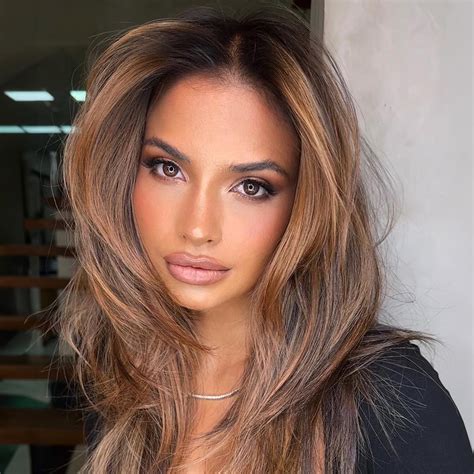Introduction
Highlights and balayage are two popular hair dyeing techniques that add dimension and depth to hair, but they have distinct differences in application, appearance, and maintenance. Understanding these differences can help you make an informed decision about which technique best suits your hair goals.

Table 1: General Overview
| Feature | Highlights | Balayage |
|---|---|---|
| Application Method | Sections of hair are lifted and bleached | Color is freehand-painted onto hair |
| Size of Colored Sections | Narrow, even strands | Wider, feathered streaks |
| Blending | Less blended, more noticeable | More subtle, more natural-looking |
| Maintenance | Requires frequent touch-ups | Requires less frequent touch-ups |
| Commitment Level | High | Lower |
3 Key Differences in Application
1. Precision vs. Freehand Painting
Highlights involve precisely sectioning hair and applying bleach to lift individual strands. This method creates even, striped effects that can be customized to your desired contrast level.
Balayage, on the other hand, is a freehand technique where color is painted onto hair in a more fluid, gradient-like manner. This approach results in a more natural, blended look.
2. Level of Contrast
The contrast between colored and uncolored sections is higher in highlights than balayage. Highlights create a more dramatic effect, whereas balayage provides a softer, more subtle enhancement.
3. Blending and Dimension
Highlights tend to have less blending between colored and uncolored sections, resulting in a more pronounced “striped” look. Balayage, however, produces a seamless transition between colors, creating a more natural-looking dimension.
2 Key Differences in Maintenance
1. Frequency of Touch-Ups
Highlights require more frequent touch-ups (every 6-8 weeks) to maintain the contrast and prevent unwanted brassiness. Balayage, due to its more blended appearance, needs less frequent touch-ups (every 12-16 weeks).
2. Home Maintenance
Maintaining highlights at home can be challenging due to the need for precise application and color correction. Balayage is easier to maintain at home as the blended nature of the color makes it less noticeable when fading occurs.
The choice between highlights and balayage ultimately depends on your personal preferences and hair goals.
Highlights are ideal for:
– Creating a dramatic, contrasting effect
– Achieving a bold, more noticeable look
– Highlighting specific sections of hair
Balayage is ideal for:
– Creating a natural-looking, blended effect
– Adding subtle dimension and depth
– Reducing the need for frequent touch-ups
Table 2: Pros and Cons
| Technique | Pros | Cons |
|---|---|---|
| Highlights | – Customisable contrast | – Higher maintenance |
| Balayage | – Natural-looking blend | – Lower maintenance |
For Highlights:
– Use a toner to neutralize brassiness and achieve the desired color tone.
– Apply a heat protectant spray before using heat styling tools to prevent damage.
– Get regular trims to remove split ends and maintain healthy hair.
For Balayage:
– Ask your stylist for a “lived-in” or “root-smudged” balayage for a more grown-out, natural look.
– Use a deep conditioner regularly to hydrate and nourish colored hair.
– Avoid over-washing hair to prevent color fading.
For Highlights:
– Applying bleach too frequently, which can damage hair.
– Over-toning, which can result in dull or uneven color.
– Using low-quality products, which can cause breakage and color fading.
For Balayage:
– Applying color too close to the roots, which can result in an unnatural appearance.
– Not blending the color properly, which can create harsh lines.
– Overlapping the color too much, which can make the hair look flat.
Table 3: Comparison of Maintenance Requirements
| Maintenance Factor | Highlights | Balayage |
|---|---|---|
| Touch-up Frequency | Every 6-8 weeks | Every 12-16 weeks |
| Home Maintenance | Challenging | Easier |
| Color Correction | Required more often | Required less often |
Table 4: Cost Considerations
| Technique | Average Cost |
|---|---|
| Highlights (full head) | $150-$300 |
| Highlights (partial head) | $100-$150 |
| Balayage (full head) | $200-$400 |
| Balayage (partial head) | $120-$200 |
Conclusion
Choosing between highlights and balayage involves understanding the unique characteristics of each technique. By considering the application method, level of contrast, blending, maintenance requirements, and your personal preferences, you can make an informed decision that complements your hair goals and lifestyle.
